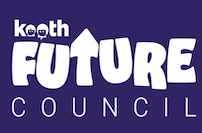'Children and young people’s (CYP) services are struggling to keep up with demand’ a new report published this week by NHS Providers has revealed.
The study entitled: ‘Forgotten Generation: shaping better services for children and young people’ has highlighted that almost all (97%) of NHS Trusts surveyed have seen an increase in demand for CYP services since the Covid-19 pandemic. 71% agree that long waits are contributing to health inequalities.
We welcome the report. However, its findings are probably not a huge surprise to those involved in the health sector, especially those supporting CYP.
Take CYP mental health services for example, where there was significant unmet demand even before the pandemic.
We know that referrals to Children and Adolescent Mental Health Services (CAMHS) have risen by 53%. Added to this, recent data from the NHS revealed that in 2022-23, 120,000 children waited six months or longer (with some waiting two years) between their referral for mental health support and treatment - this is over six times the four-week target.
As a result, too few CYP in need have access to effective mental health care.
At Kooth, we have been vocal about our belief that easy and free access to early intervention and prevention is the best approach to addressing the mental health crisis in the UK (and globally).
Responsive, early help is key. It means we can work with CYP to help them understand their feelings. We can help them develop the know-how and tools to support their mental health before any issues escalate or become entrenched.
In doing so, we can reduce suffering, reduce the demand for more costly mental health treatments, and relieve pressure on frontline CAMHS teams.
This approach is aligned with the NHS Providers report that states: ‘focusing on prevention in childhood and adolescence leads to a healthier adult population, both relieving pressures on burdened services and ensuring a healthy and thriving society and population in the long-term’.
In its 2024 manifesto, the Labour Party recognised that the UK is facing a crisis in mental illness and clearly articulated a commitment to transform the health of our population.
When it comes to mental health care, the proposed plans include the recruitment of more support professionals alongside the extension of community mental health hubs and mental health support teams in schools and colleges.
As an organisation that exists to build mentally healthier populations, we welcome this planned approach.
However, as with any new initiative, it will take time for these services to develop and reach their full potential. Perhaps unsurprisingly, we believe that embracing digitally-enabled models of care alongside extending school and community-based provision would maximise opportunities for CYP. This would enable young people to access the support they need, when they need it, and rapidly open up opportunities to intervene early to prevent issues from developing further.
This is critical. We know that for many young people, the first place to seek support is online. So, it’s essential that we offer routes to ‘go somewhere good’, with high quality, evidence-based care and support that is as easy to access as social media, but with appropriate safeguards to keep people safe.
At Kooth, we’ve seen first hand the impact that digitally-enabled care can have, in terms of both access and outcomes. We see spikes in usage outside of working hours (where traditional services are often unavailable): over two thirds of CYP access our mental health and wellbeing tools outside of 9am and 5pm. Most importantly, independent evaluation demonstrates that our services are effective in improving the mental health of CYP, which has long-term benefits for their overall wellbeing, and engagement with school and social life.
At Kooth, we are optimistic and look forward to continuing to work in partnership with the NHS, the government, local authorities, and other vital services to build healthier thriving populations, leaving no-one behind.




